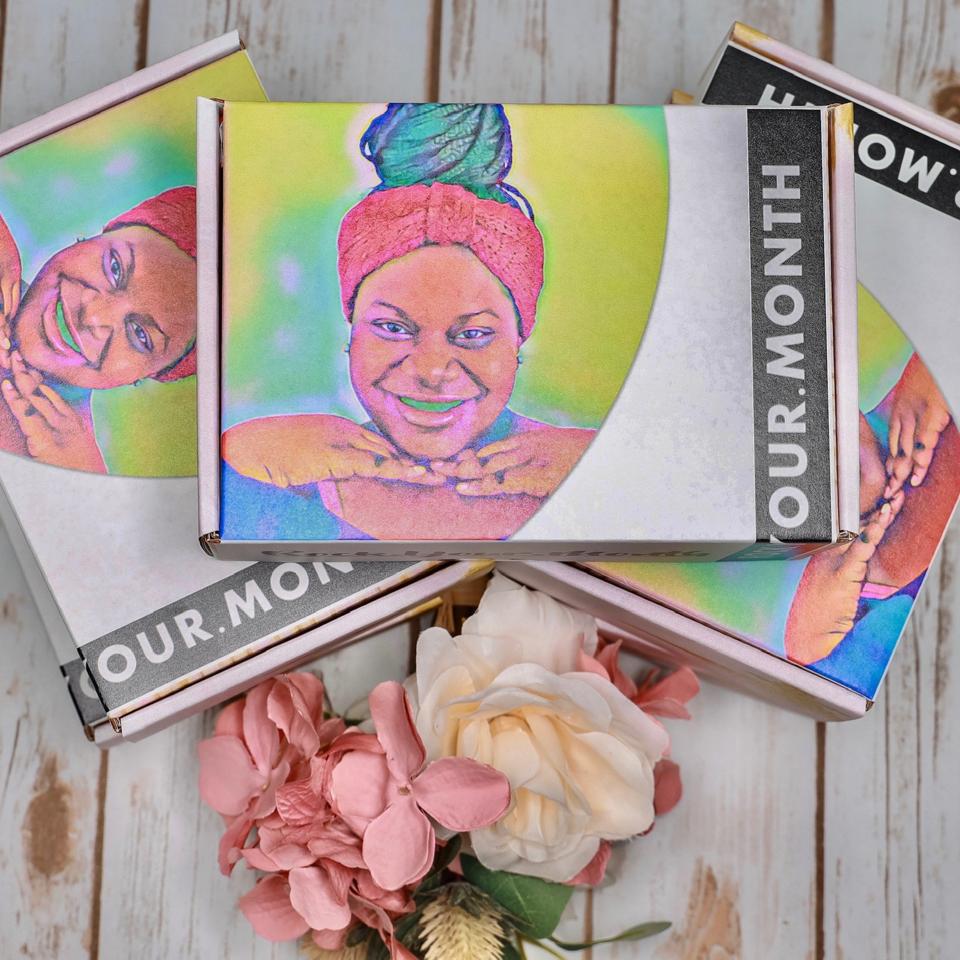
One Black-owned business Rock Your Month (RYM), is hoping to change the way we approach periods and … [+]
Rock Your Month
While there has been much discussion in recent years about the “tampon tax” (more than 30 states still tax tampons as a luxury item), a recent study found 1 in 5 teens in the U.S. struggles to afford period products or were not able to purchase them at all. As this study notes, period poverty and lack of proper period products lead to significantly higher infection and emotional anxiety risks.
That’s why one Black-owned business Rock Your Month (RYM), is hoping to change the way we approach periods and make it easier for all women to access the feminine hygiene products they need.
RYM is an online subscription box service for feminine hygiene products with a mission to ensure all women have access to feminine care. Founder JaBett Glenn is also a full-time active duty military service member and mom of four, who thought of the idea after realizing the importance of convenience and accessibility to feminine hygiene products during her military training time.
Tampons Viewed As A Luxury Item

A recent study found 1 in 5 teens in the U.S. struggles to afford period products or were not able … [+]
Rock Your Month
A survey of low-income women in a large U.S. city found that nearly two-thirds couldn’t afford menstrual hygiene products such as tampons or pads during the previous year. In an Obstetrics & Gynecology report, researchers showed that more than one in five women said they had this problem every month.
The majority of America’s states charge tax on menstrual products. There seems to be a misconception that women’s menstrual products are viewed as a luxury rather than a necessity.
“Changing the view on the tampon/period tax must begin with changing the perspective on periods,” Ms. Glenn said. “It has to be understood on a broader scale throughout legislations that periods are not optional luxuries to be taxed. Our cycles are biological necessities that directly affect our health, our communities, and the very birth of human society.”
At present, there are 12 states where feminine hygiene products are not taxed. Five states, Alaska, Delaware, New Hampshire, Montana, and Oregon, do not have a sales tax, and seven states are specifically exempt from feminine hygiene products. They are Illinois, Maryland, Massachusetts, Minnesota, New Jersey, New York, and Pennsylvania. In states like Massachusetts and Maryland, feminine hygiene products are exempt because they are considered medical products.
“Unless the tampon tax is dedicated to being funneled directly into programs that provide feminine hygienic care to low-income families, school systems, and young girls in need, there’s no place for it,” Glenn said. “Our periods and the conversations around them have to be seen for the crucial roles they play in our reproductive capabilities. Without periods, there is no us. When that truly becomes a basic understanding everywhere, then I believe we can finally see the change required to bring awareness and knowledge where it’s needed most in the realm of feminine hygiene.”
How Rock Your Month Came To Be

Founder JaBett Glenn is a full-time active duty military service member and mom of four, who thought … [+]
Rock Your Month
“I have 14 years of experience serving with the U.S. Military, nine years of experience in business management with a large private company, a Bachelor’s Degree in computer animation, and an Associate’s Degree in business administration,” Ms. Glenn shared. “Would I have thought ten years ago I’d combine all those experiences to enter the period care industry? No.”
Initially founded in 2018, the initial concept evolved around simplifying how women and girls receive period care. Ms. Glenn slowly discovered more about the disparities women experience regarding period care and the existing stigmas.
“Yes, we’re a period subscription box company designed to support women in all walks of life,” Glenn states. “But we also use proceeds to bring change, educate, and empower our women to be the bold and brilliant beings they are, even during that time of the month.”
As a part of its business model, Rock Your Month donates proceeds from all subscription memberships to provide feminine care to women in underserved communities. Ms. Glenn is currently partnering with several local entities like the Michigan Veteran’s Business Association and the Detroit Rescue Mission Ministries. She has supported more than 7,000 local women in need so far.
The Reality of Period Poverty

Rearview shot of a young woman looking at products in a pharmacy
getty
In the U.S., 25 million women live in poverty, but food stamps do not cover period products. According to a study published in BMC Women’s Health, period poverty, or a lack of access to menstrual products and education, affects one in 10 college students in the United States. These women are also more likely to report depression than their peers.
“I genuinely hope through our initiatives, period product drives, and donation campaigns, we play a crucial role in both raising awareness and starting the conversation on where we fall short as a society in supporting feminine hygienic care,” Ms. Glenn said. “Through having these conversations, we begin to remove stigmas and become more comfortable with speaking up as women and menstruators about our bodies and their processes. Conversations like this are essential for us to learn and ultimately define what we can do as a community to become better supporters for each other.”
According to UNICEF, women spend an average of 2,535 days in their lifetime, or almost seven years, on their periods. This can lead to thousands of dollars spent on period supplies. Compounding the problem, the U.S. Census Bureau has reported that women make up more than half of the population in the U.S. and are already more likely than men to live in poverty. In September 2020, one estimate had the global feminine hygiene products market growing to $51 billion by 2027.
Some progress has been made toward addressing period poverty, both domestically and abroad. Most notably, in November 2020, Scotland became the first country in the world to provide period products to all women for free. However, we still have a long way to go.
Ms. Glenn recommends businesses try and get involved as well. “The fundamental way to support is to provide,” she advised. “Providing accessibility to period products in the workplace should be considered the bare minimum for cultivating an inclusive and supportive environment for women and menstruators.”
When asked if she had any advice for parents on how to have conversations around this topic, her first suggestion is to have the conversation. “Not the textbook lecture, but a real and genuine discussion about our periods, the expectations, and the critical care it takes to have a healthy experience. Then leave that door open to continue the conversation whenever questions or thoughts arise. It’s not a one-and-done conversation because our periods are not a one-and-done moment. It’s a growth and learning process for everyone, all the way through to young adulthood.”
She also recommends that fathers not shy away from these talks either. “It’s imperative for dads to understand and be able to have a basic conversation on the biology of periods. This acceptance should also be extended to our sons. Why? Because everyone has to be a part of the conversation to understand and remove the stigma around it.”
And this is something she practices at home with her own family. “As my daughters continue to grow and mature, I want them to feel confident and unashamed of who they are and what their bodies can do,” Ms. Glenn disclosed. “I want them to have a sense of boldness that allows them to advocate for themselves to demand fairness and equity when it comes to their necessities. I want them to see that there is absolutely nothing taboo or unclean about their body’s natural process.”




